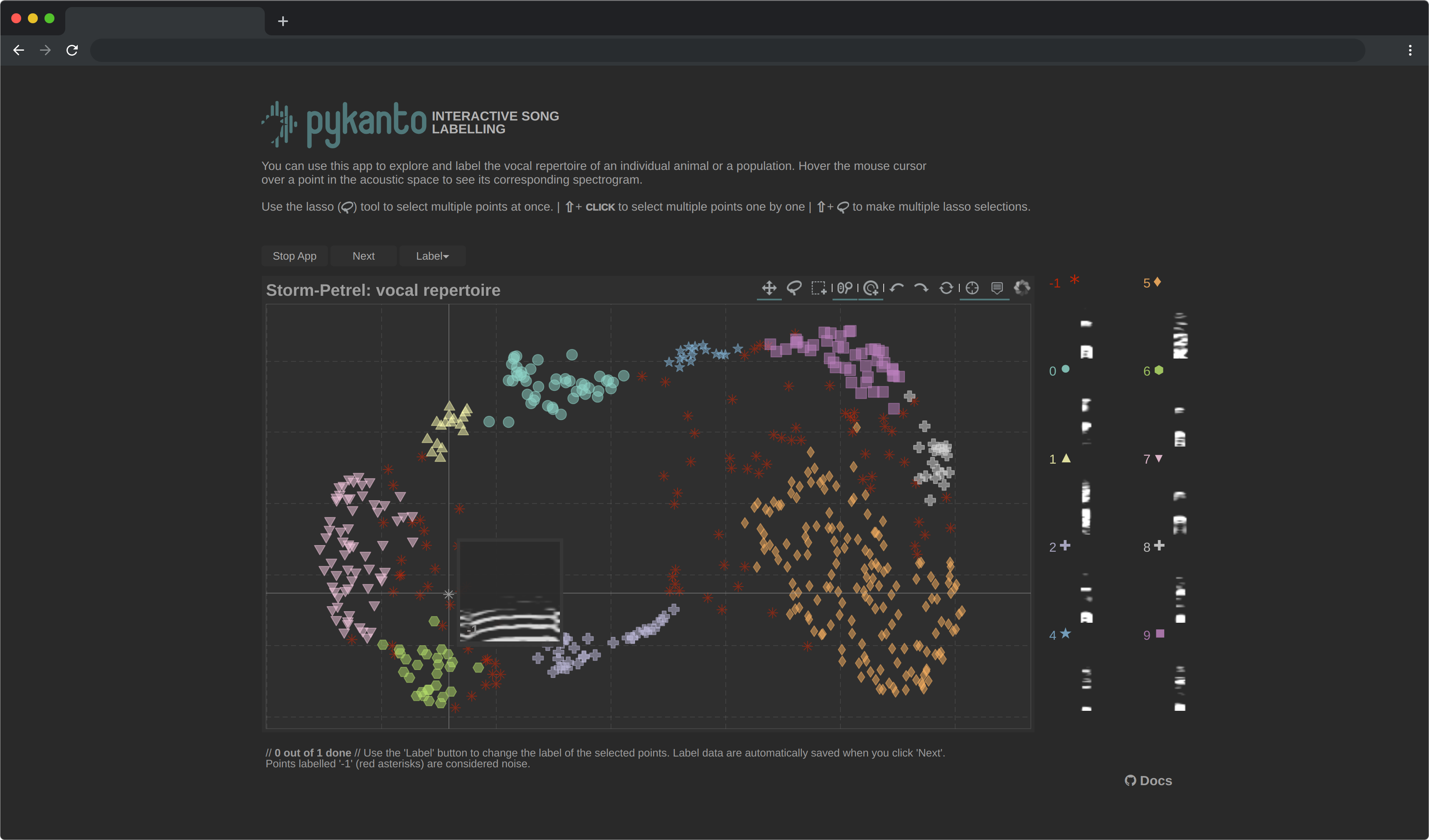Interactive app
Interactive app#
pykanto includes a web application that allows you to interactively explore
your data. It can be launched using a method from the KantoData class:
dataset.open_label_app()
This will open a new tab in your browser: you can follow the instructions in the app to explore and label your data.

Once you are done checking the automatically assigned labels you need to reload the updated dataset, which has been automatically saved to disk:
dataset = dataset.reload()
You can also use the app to check and correct labels assigned through any other means, for example after training a deep learning classifier model. To do this, you simply need to add your custom labels to the dataframe containing your data.
For example, if your KantoData object is called dataset, you
can overwrite the auto_class column in dataset.data with your own labels
(type: str). This will work when dataset.parameters.song_level = True; if you want
to do this at the note or unit level please open an issue on GitHub and I’ll add
this functionality.
Note:
Running the web application requires having run the following methods on your KantoData object:
dataset.segment_into_units()
dataset.get_units()
dataset.cluster_ids()
dataset.prepare_interactive_data()
These find distinct units in each vocalisation, label them, and create lightweight representations of the sounds. See the entire process in the basic workflow page for more details.